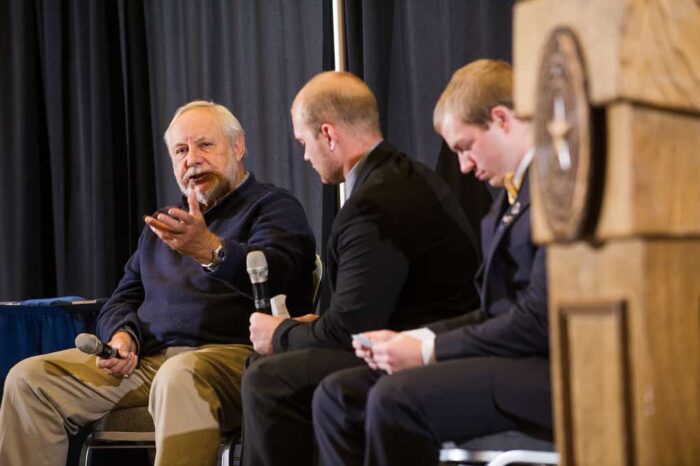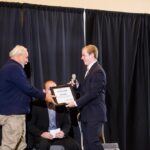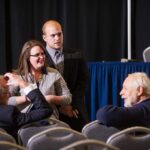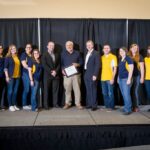German-born US Army Veteran Shares Life, Impact of WWII

In the fourth presentation of the East Texas War and Memory Project (ETWMP) Lecture Series on Feb. 5, retired U.S. Army Spc. Karl Clauss spoke on his experiences as a child in Germany during World War II and as an expatriate and serviceman in the United States.
Following ETWMP intern Jackson Dailey's introduction, intern Nick Sprenger interviewed Clauss, who was born in Germany in 1940. Clauss' father served in the German armed forces during the war and was held in concentration camps in several areas before being sent to a Russian camp. During this time, Clauss and his mother were unaware of his father's location and had to evacuate their home—only to reach a town that was being attacked.
“I, as a five-year-old boy, had to see things which now still are in my memory,” said Clauss. “In fact, I can at the moment, even now, envision some of the things. It was a horrendous thing. When I was eight years old, I had post-traumatic stress syndrome.”
Clauss' father, the only survivor from the Russian camp, rejoined the family in 1948—coinciding with the Marshall Plan, the U.S. initiative to provide aid to Europe at WWII's end—but Clauss said he never spoke of his experience.
In 1957, when his family arrived in the U.S., Clauss said that he had a guilt complex because of the atrocities that had taken place during the war and would tell people that he was Austrian rather than German. However, when Clauss was placed on academic probation at the University of California, Los Angeles (UCLA), he joined the U.S. Army—at the urging of his father, for whom Clauss said “the uniform represented discipline.”
Army assignments took Clauss to various locations, including Alaska and back to Germany, where he served as a liaison officer during the time of the construction of the Berlin Wall. After his service, Clauss returned to college to study information technology and computer science, receiving both bachelor's and master's degrees from UCLA.
In Clauss' career, he has held several roles. He worked as an accountant at a Nike missile range, and he participated in the development of the technology for the swimming pools used during the 1972 Munich Olympics. He had just traveled to Spain at the time members of the Israeli Olympic team had been taken hostage. Clauss also worked on technology projects in the Soviet Union during the period of unrest leading up to its dissolution. Clauss recalled the marchers on the Red Square and shootings in the lobby of the hotel where he was staying.
Ultimately retiring from Atlantic Richfield Company to Cumby, Texas, Clauss and his wife now run a small ranch. He says that he has lived the American Dream, but Clauss' experience has inspired a particular lesson for the audience.
“Hopefully, that's my message: the inhumanity of war,” said Clauss. “We can learn from our history.”
*
The East Texas War and Memory Project preserves the stories of veterans of World War II, Korea, the Cold War, and Vietnam by recording oral histories and collecting artifacts illustrating their experiences, including service records, photographs and written correspondence. These sources are housed in the James Gee Library archives. Those interested in the ETWMP can follow the project at facebook.com/WarAndMemory.
View more photos from Clauss’ presentation here on our Flickr page.





